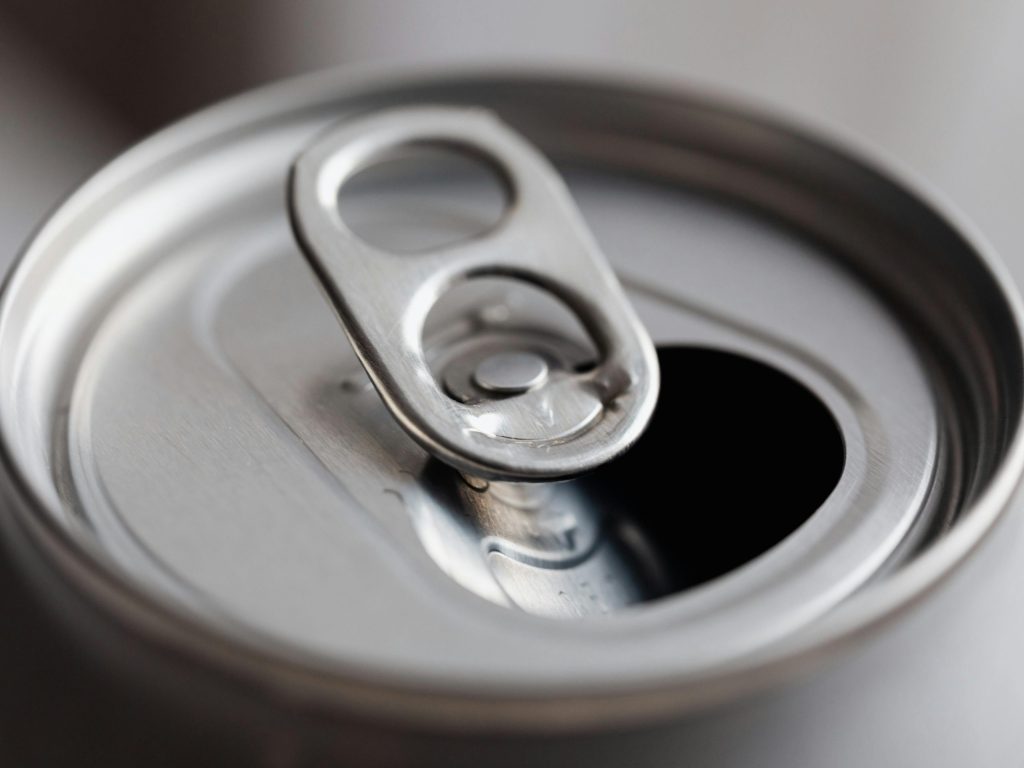Global Trade

September 26, 2025
Ball, Red Bull, and Rauch break ground on Concord plant: A new era for beverage cans
Written by Nicholas Bell
Ball Corporation, Red Bull, and Rauch Fruchtsäfte have broken ground on a 2.3-million-square-foot production, manufacturing, and distribution facility in Concord, N.C.
The plant is slated to begin operations in 2028, with capacity expected to reach up to three billion cans annually by 2031.
The campus will include Ball’s aluminum can production, Rauch’s filling operations, and Red Bull’s warehousing and distribution capabilities.
This marks the second integrated U.S. manufacturing campus for the three companies, the other facility being the Glendale, AZ site – one of Ball’s largest by beverage can production capacity in the U.S.
Blue Ridge back in Ball’s court
The decision to build in Concord re-establishes Ball’s presence in the Carolinas, a market it has been absent from since idling its Reidsville, N.C., facility sometime around 2018.
Competitors have maintained their footprint in the region over that time.
Ardagh Metal Packaging operates its largest U.S. facility in Winston-Salem, N.C., with nameplate capacity rivalling Ball Corp./Red Bull/Rauch’s vertically-integrated Glendale, AZ, plant, according to CRU data.
Crown Holdings runs a plant in Cheraw, SC, with capacity at the upper end of U.S. levels, while Ardagh also operates in Bishopsville, SC, where potential capacity nears two billion cans annually.
With this competitive ecosystem, Ball’s long-delayed Concord site will give it the ability to compete directly in a region that has become one of the denser clusters of beverage can production in the U.S.
The project has been in the works for years, with plans first announced in 2022 and construction deferred “in alignment with our customer’s timeline,” as executive put it during quarterly earnings that year.
By 2023, operations had been pushed to 2028 and ground had still not been broken.
Ball, meanwhile, only recently broke ground on a can plant in Millersburg, OR, a project that had also been long in the making as the company worked with local officials on site selection.
Brands at the helm
For Red Bull and Rauch, the Concord campus provides a strategically located hub.
Red Bull Distribution Company already operates seven regional warehouses in North Carolina and close to 150 across the broader U.S., though its presence is extremely sparse in the Great Plains, the Deep South excluding Florida, and the Pacific Northwest.
Meanwhile, the anticipated plant ties the companies directly into the Norfolk Southern rail system that runs along the East Coast and southern markets.
Rolling out new capacity
As new can plants expand forming capacity, their viability depends on access to can sheet.
Ball has turned to Novelis to ensure that supply, signing a long-term agreement in 2023 to secure volumes once Novelis’ Bay Minette, Al., rolling mill comes online.
The $4.1 billion facility mill, now targeting a first-half 2026 start-up, brings a whopping 600,000 metric tons (t) per year flat-rolled product capacity to the U.S. supply base, 420,000t of which Novelis plans to apportion to beverage can sheet.
Ball’s earnings in 2025 were lifted in part by energy drink packaging, and Novelis is forecasting about a 4% compound annual growth rate in global beverage packaging demand, excluding China, through 2030.
Costs under the lid
Even as new supply comes online, can sheet producers face intensifying cost pressure.
Average conversion fees for beverage can body stock in the U.S. are projected to rise by 8%-9% in 2026 compared with 2025 average, according to CRU data.
End stock is set to increase even more sharply, by 10%-11%, due to its reliance on prime aluminum and the high-magnesium 5XXX series stricter impurity thresholds. Body stock, which can incorporate more recycled content in its melt mix, remains somewhat more insulated.
That said, both forms are affected by rising input costs and fluctuating scrap availability, dynamics that have been upended by protectionist trade measures and a Midwest delivery premium that has surged well beyond previous highs this year. With little sign of relief beyond a potential rollback of Section 232 tariffs, the pricing environment remains historically tight.
Red Bull’s energy drinks also tilt the material balance toward end stock. The brand’s slim cans use less aluminum overall than standard 12-ounce cans, but the weight reduction comes disproportionately from the body sheet.
The thinner, lighter body stock required for a slim can reduces the material demand much more sharply than the relatively modest reduction in the diameter of the end that accompanies its downsizing.
Since ends must maintain structural integrity, their weight does not fall in proportion with the body, meaning higher-priced end stock makes up a larger share of the total metal content in slimmer formats.
Reinventing the end
To address those challenges, Novelis recently announced a joint development agreement with DRT Holdings to accelerate the adoption of high-recycled-content alloys for beverage ends.
The project focuses on so-called “uni-alloy” designs that can incorporate up to 99% reyclced content while maintaining performance.
At scale, high-speed lines running continuously could supply more than a billion ends annually. With end stock demand already rising alongside overall can growth, the technology would instead provide Novelis with a distinct production avenue.
Whereas some U.S. mills focus exclusively on end stock for their beverage packaging offerings and other concentrate solely on body sheet, Novelis/DRT’s proprietary process would allow it to produce end stock more cost-effectively through higher recycled content, strengthening its competitive position in a market where most U.S. beverage market aluminum mills attempt to supply both.
Cans’ next chapter
Until recently, joint ventures between beverage brands and can makers had almost exclusively been the domain of beer companies.
Anheuser-Busch created Metal Container Corporation in the 1970’s to supply its own breweries, followed decades later by Rocky Mountain Metal Container, a partnership between Ball and Molson Coors.
What makes Concord notable is now non-beer brands (or soda brands for that matter) – an energy drink company in Red Bull and a fruit juice filler in Rauch – are committing to the same model.
Beer remains a large market, but its role has diminished among younger consumers, forcing brewers to expand aggressively into hard seltzers, which also are often packaged in slim cans.
Ball/Red Bull/Rauch’s willingness to integrate upstream reflects both confidence in long-term demand and a consumer landscape shifting away from beer as the singular engine of can growth.
In that sense, Concord doesn’t just represent a supply chain pivot; it mirrors a broader change in beverages that consumers are choosing, with energy drinks and specialty non-carbonated beverages stepping into the space beer once defined.
While operations in Concord will not begin until 2028, its scale and its integration from can forming to warehousing make clear how far ahead beverage brands are planning in a market where consumer preferences are shifting alongside the supply chains that serve them.








